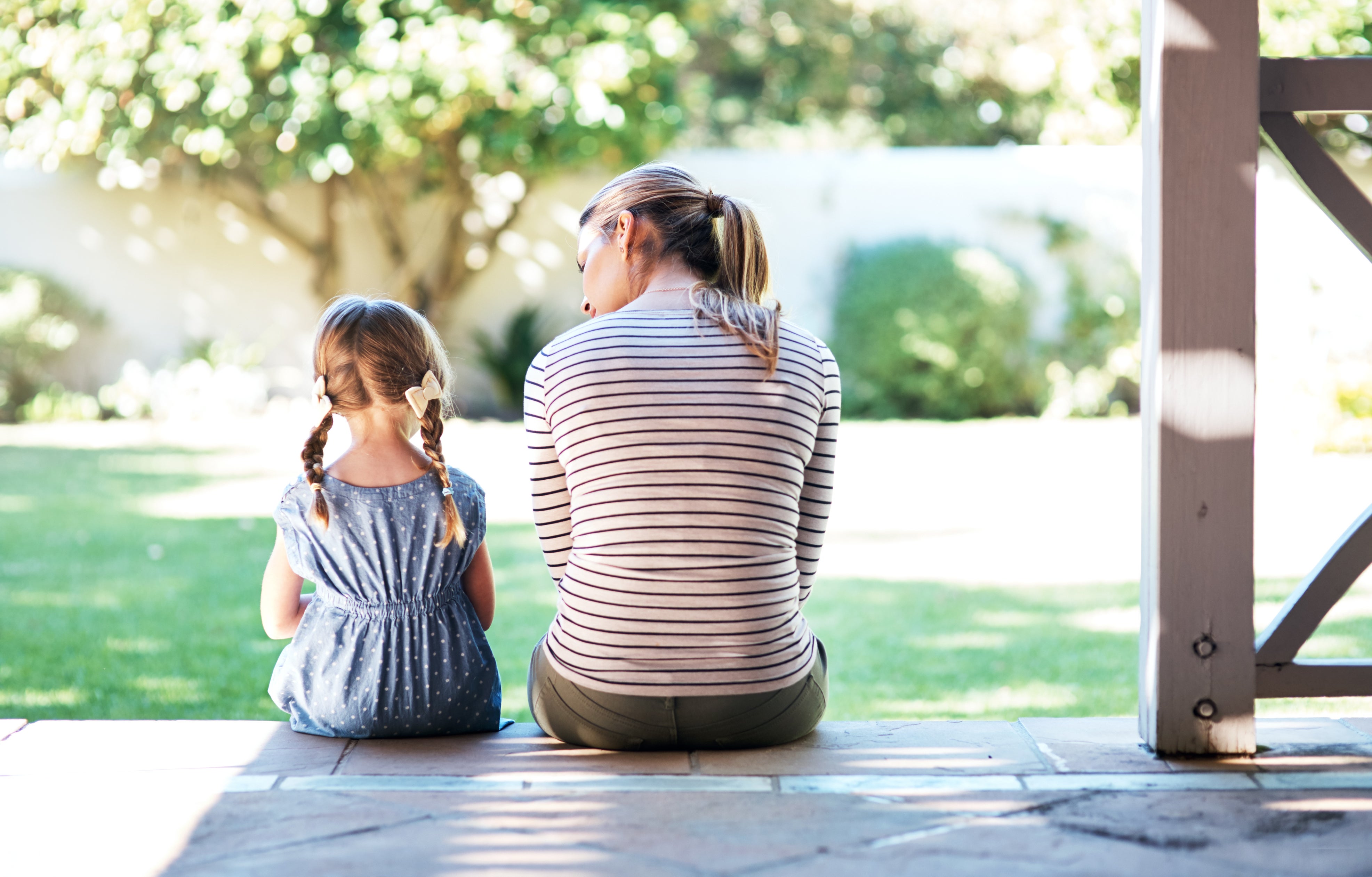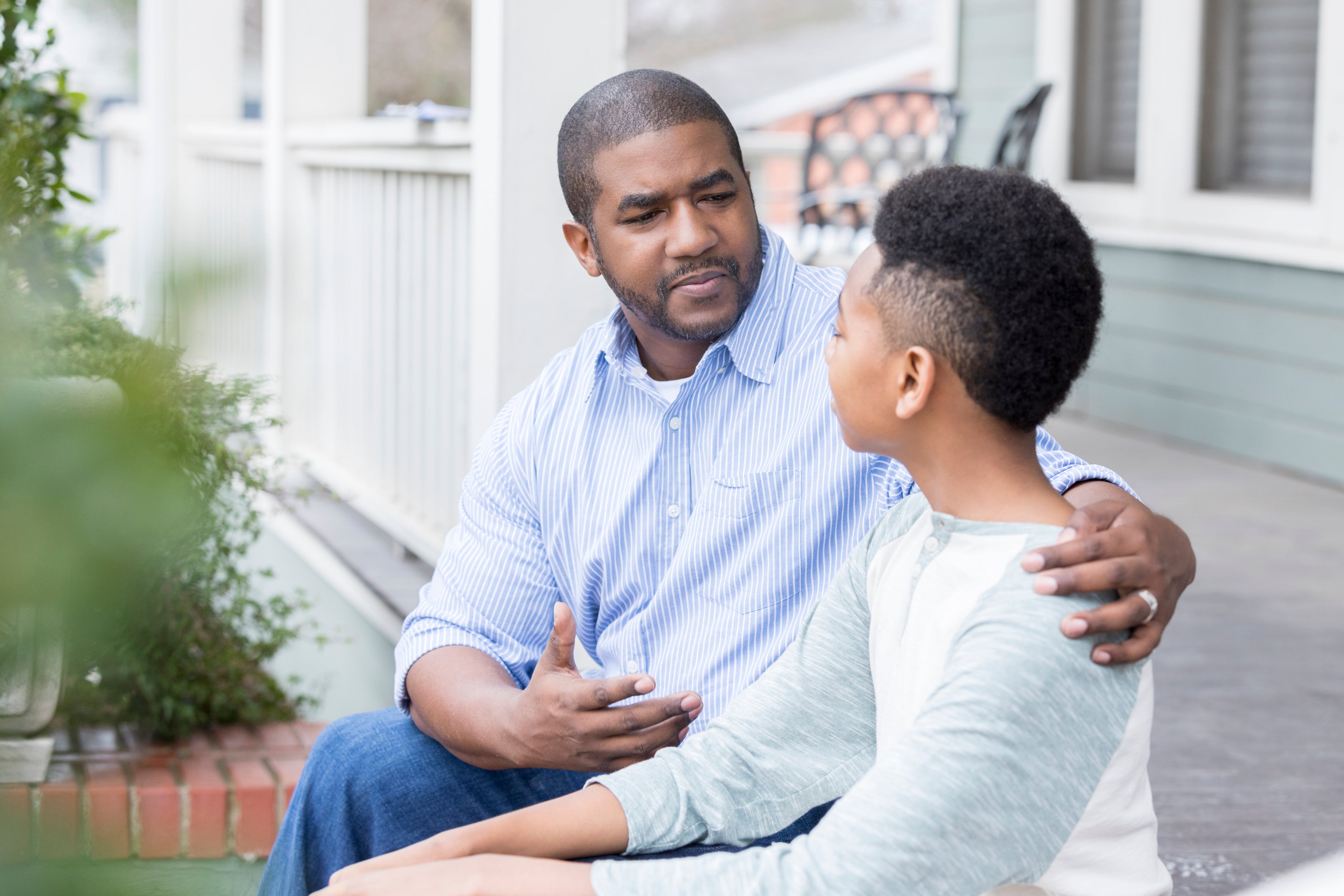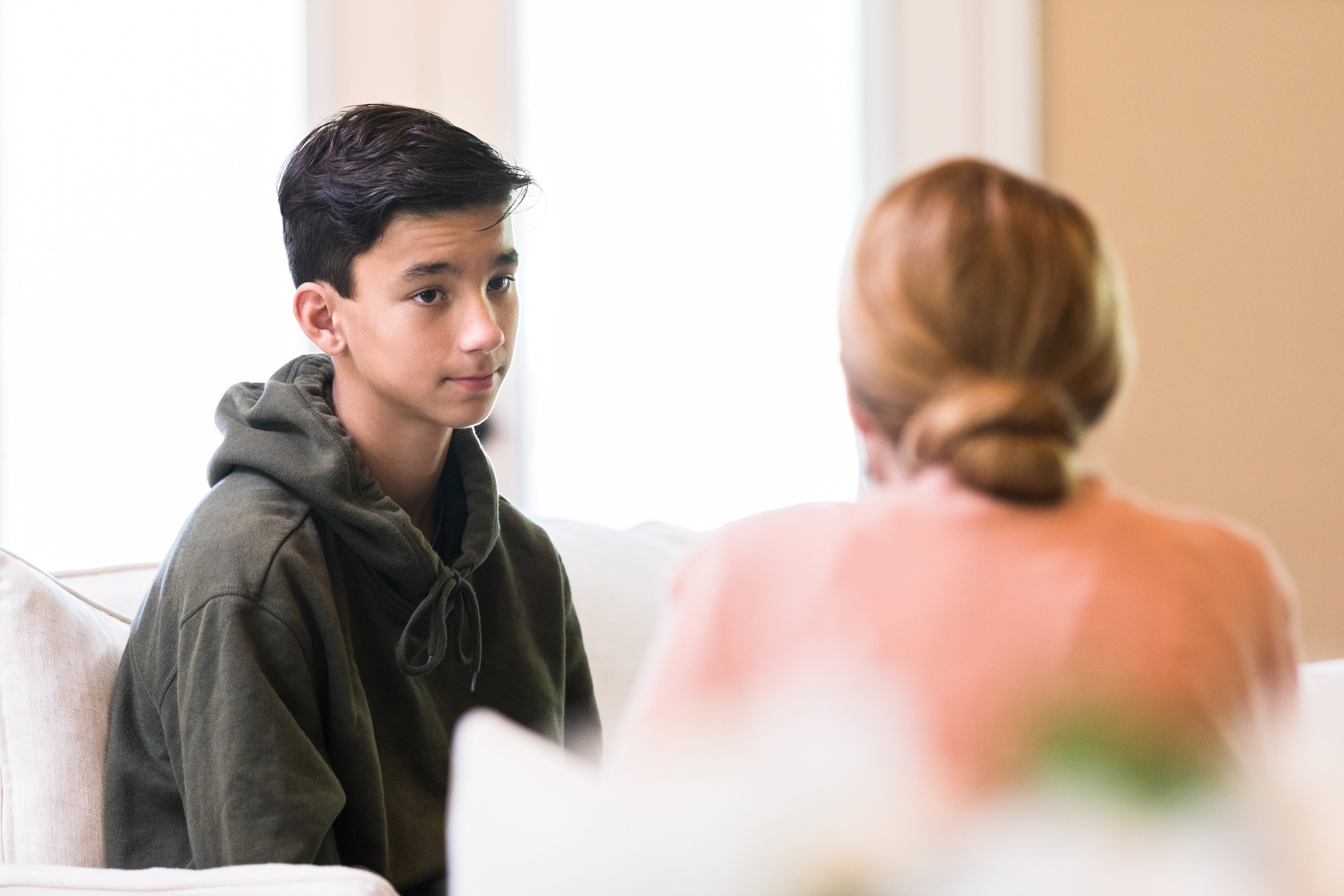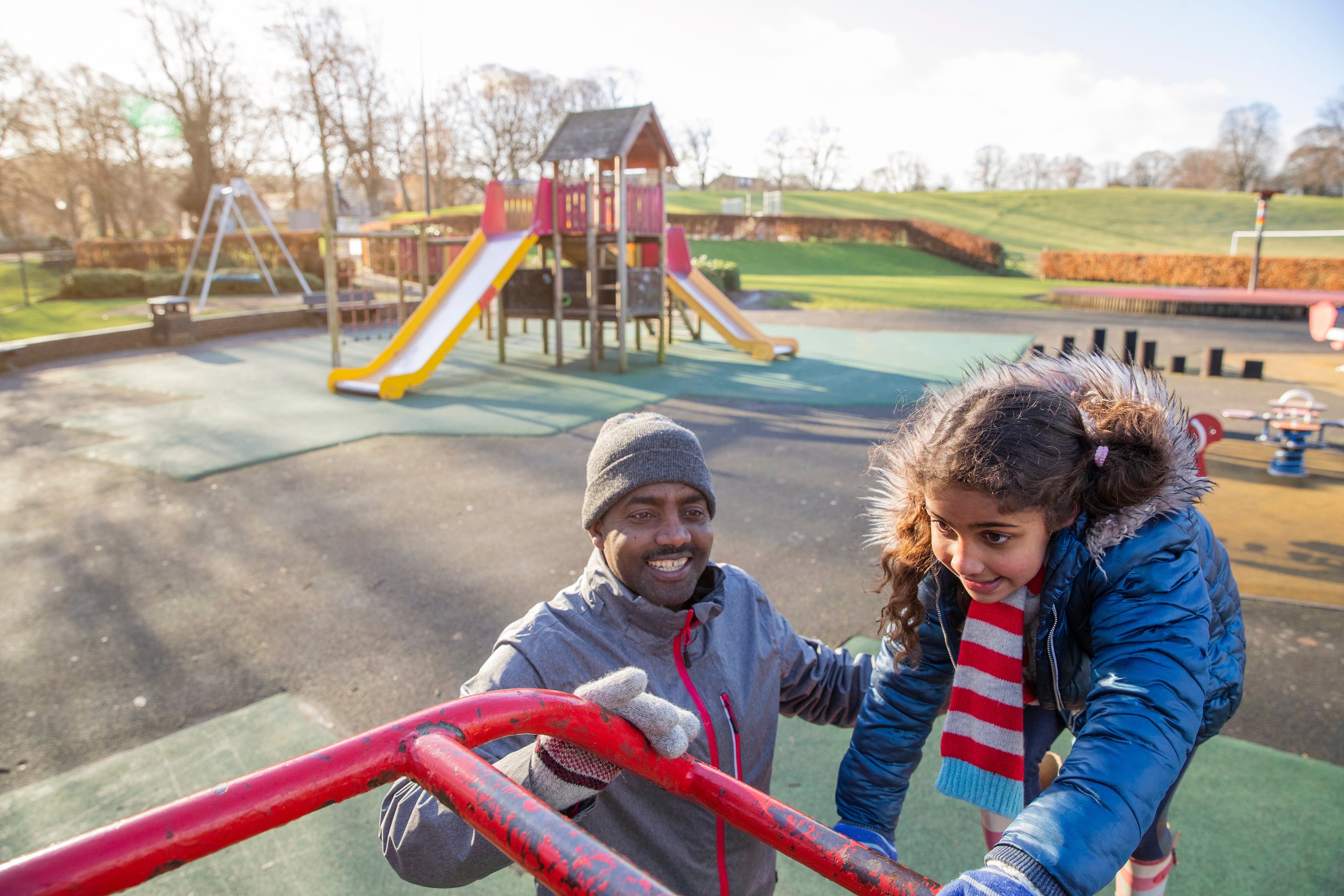How to talk to your children about the Ukraine crisis
We speak to the experts about age-appropriate, practical advice to help support your child

Former Strictly contestant and BBC presenter Dan Walker has revealed the “difficult” conversations he is having with his three children about the ongoing crisis in Ukraine.
The father-of three was speaking to Defence Secretary Ben Wallace, who also disclosed that his own 12-year-old had called him after Russian President Vladimir Putin began talking about nuclear warfare.
Walker reassured viewers that many parents are struggling to know what to say to their children right now.
“We are very much aware there are lots of people with young children watching this morning, getting ready for school, and it’s difficult to have those conversations with your children,” he said.
If you’re struggling with how to broach this sensitive subject with the children and young people in your life, you’re not alone. We’ve spoken to the experts for some guidance on how to talk about this difficult topic.
Be mindful of your reactions as a parent or caregiver

Ryan Lowe, a child psychotherapist and spokesperson for the Association of Child Psychotherapists (ACP), lamented the very poor state of children and young people’s mental health right now as a consequence of the pandemic, noting that they are in a very vulnerable place.
“Our children have been in such a state of anxiety for such a long time now that it’s really important that we try and manage our own feelings and not get carried away with the ‘what ifs’,” she began.
“Our kids are currently at their weakest in terms of mental health than they have ever been in this country. They need us to be strong and calm and grounded and not get too panicky or freaked out, because if we are, we’re going to pass on that anxiety to them.”
Dr Jeri Tikare, clinical psychologist at digital mental health platform Kooth agrees. “One of the ways children learn and develop is via observing and then modelling adult behaviour. Hence, children can pick up anxieties or worries displayed by parents.”
Be honest with your child

“It is important to be as truthful as you can in a way that feels safe for children,” says Dr Tikare.
“This means that it is important for us not to hide things away from them, because it is better for them to hear it from us (their people of safeness) as opposed to reading it or hearing it from others.”
He notes that curious minds will invariably seek out information on their own, and that getting information from a reliable source can feel “containing and reassuring”.
Ms Lowe adds that it’s important that parents or caregivers don’t make promises to their children. “We don’t know what the future holds - but I would give as much information as we can about what it is that is being fought for and why it’s important,” she says.
Ms Lowe states the importance of tailoring what you say to your child to their age “and in language they can understand”.
Grief specialist and training provider Jill Attree adds that it’s OK not to have all the answers.
She says: “Don’t lie, be honest and if you don’t know the answer it is ok to say just that - ‘I am sorry, but I don’t know the answer to that question’. Remember, if you are giving an answer, stop at the answer, don’t explain further; talking too much may overwhelm them. They will come back to you if they feel they need to ask more.”
Use storytelling to help children relate
Both Dr Tikare and Ms Lowe agree that storytelling can be a powerful and creative tool in helping children understand complex issues.
“I think there are some really beautiful, extraordinary stories about the Ukrainian people at the moment,” says Ms Lowe, citing a recent piece by Yuval Noah Harari published earlier this week.
“Teenagers can really understand some of those stories and the feelings behind them and the wish to fight for your home, your family and your country. It’s explaining that it’s a time when things we truly believe in - a people’s right to democracy, to have a vote for what they believe in - are important to fight for. It’s acknowledging that, unfortunately, this can make the world feel a bit wobbly and unsettled.”
Smaller children can really benefit from viewing global conflict on a micro level, she continues.
“If you’re talking to little kids, it’s going to be a bit simplistic. However, they are aware of fights in the playground and of people who want to have their gang, so you can talk about it in terms of playground dynamics. For example: ‘Putin is the archetypal playground bully - he is bullying everybody right now.’
“Below primary school age, they’re not really going to be aware of it and will just want mummies and daddies to reassure them that everything’s fine and they’re OK. But from primary school age, there will be kids talking about it and they’ll understand the news if they hear it,” she adds.
Encourage them to talk about their feelings and concerns

Ms Attree recommends finding a calm, safe place where you can sit down with your child without any distraction. “Allow them to share their emotions without judgement or criticism,” she says. “Have nothing in your hands, stop cooking the dinner, and sit together.”
While it can be tempting to minimise their feelings, this isn’t always helpful, she says.
“Don’t tell them not to be sad or scared - sadness and fear are normal and natural reactions to frightening situations,” says Ms Attree.
Reassuring your child that you are available to talk about things is also a good step, says Dr Tikare. “Giving them extra love and attention at this time can be helpful, especially at difficult times like this,” he adds.
Prioritise play

Now, more than ever, play is an important tool to support your child, says Dr Tikare. “Playing and having fun with your children more at this time can be helpful as it can provide a sense of distraction and help them feel more relaxed,” he says.
“Give them opportunities to express their emotions in different ways such as writing, drawing, stories, songs, and things that feel helpful for the child.
“Some children find a feelings box helpful. It might also be helpful to introduce them to some simple relaxation techniques such as taking three deep, slow breaths - breathing in for a count of three and out for three,” he adds.
Join our commenting forum
Join thought-provoking conversations, follow other Independent readers and see their replies
Comments
Bookmark popover
Removed from bookmarks